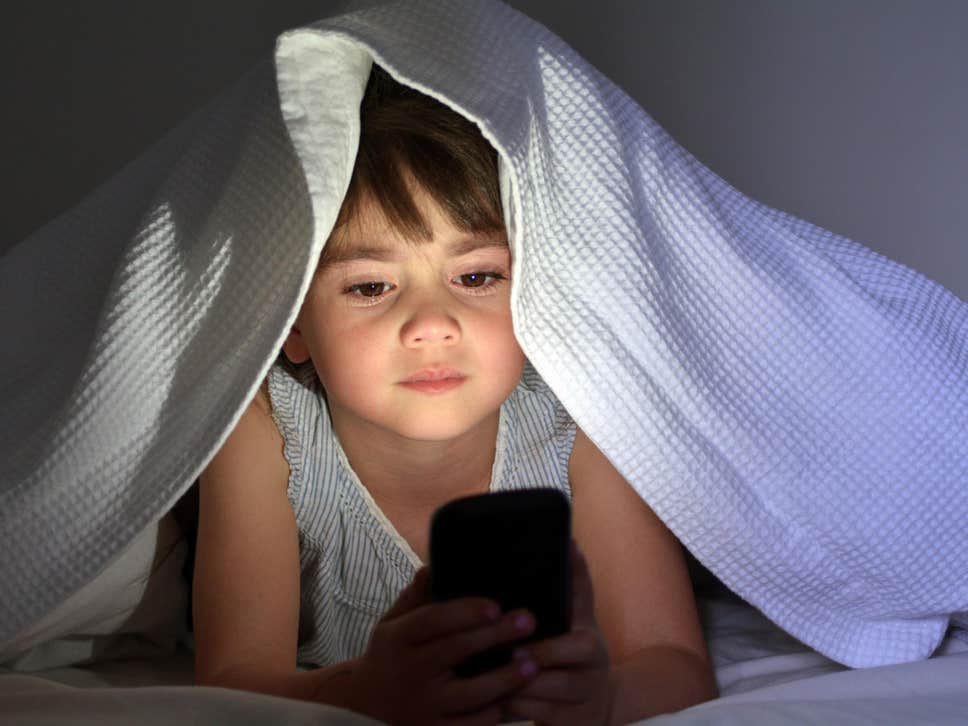Ohh…its 2 am?? Really….! – This is a common reaction these days. Of course, we spend our maximum daytime on the phone, watching television, on a computer, etc.. but we also don’t spare our nights for the same!
It’s not every time for the sake of entertainment always but we do live in a world of work-related deadlines, updating ourselves constantly with news, information, new trends for shopping, new versions in technology etc…and also gossip! Like, what’s happening in other people’s life and so.on…
Just like our apps on smartphones, we are constantly updating our status on social media….. For poojas, for celebrations, for achievements, for birthdays, for marriages and honeymoon destinations, for newborns, and the common status with bad news “#RIP, miss you loads!” there is only one rule “status must be updated”.
So, what’s the big deal? if we are spending just 2-3minutes for updating status daily? It hardly takes a few minutes….but for preparation, we do spend a lot of time clicking a set of selfies for hours…Ohk, so this a matter of fact, where my holiday resting and leisure time was gone. But, again no selfies, a status not updated …and I am getting behind of others who post every second about their happening lives; this is what we think.
Do selfies, upgrading status, posting comments, online surfing and watching newly uploaded videos constantly, really make us confident and our lives happening???? Certainly, it does temporarily but researchers found that it may lead to obsession causing anxiety and depression for a longer duration.
In children:

Addiction to phone or social media is linked with attention deficit hyperactivity disorder (ADHD). Its mostly found in children having screen time more than 2 hours per day. Although, the recommended screen time for children is 0 to 30 minutes maximum per day. Increased screen time can affect their sleeping pattern and physical activity that majorly hampers overall growth and development. It also affects their normal behavior.
Children with screen time more than 30 minutes also develop a risk of obesity, as there are constant junk foods that add going on, which affects their eating pattern. And also lack exercise and playing and running freely on grounds is replaced by watching television and playing games on mobile phones.
If kids are fond of social media, they are aware of getting an immediate response in the form of likes, comments, etc.. As a result, what they lack is “patience” and “discipline” in life. Later on, making them anxious and impulsive adults. Also, they tend to develop “virtual friendships” more than actual friendships. This increases their feeling of “loneliness” making them low self-esteem adults for most of their lives.
Most important fact, that kids or even adolescents tend to believe that “Life is simple and full of instant activities.” Which may not be true…everytime. When we work hard or study well, we cannot “download” success or good score the next moment as in many of those gadgets.
Similarly, excess weight may not bother kids only in their childhood phase. Obese kids feel embarrassed among their peer group, get teased for eating more. Such kids are at risk of becoming lonely, as they don’t go for playing outdoor games, even running makes them uncomfortable and breathless. They become conscious about their “appearance” and also nervous, while small kids never think much about their looks as far as they are happy playing and making their clothes dirty.

So, what option remains for overweight and obese kids is to spend maximum time on screen, because that time nobody is watching them, yet it initially makes them feel better – as they win a game online, or watch cartoons, movies, etc.. and also new friends on social media, who probably might give a better response than face-to-face interactions.
In adolescents and adults :
The same girls who were overweight, obese in childhood phase are now at risk of developing “Polycystic ovary syndrome” (PCOS). Now, PCOS is a health condition that has no permanent cure as such, although symptoms can be treated or reduced. This condition is mainly linked with hormonal imbalance which doesn’t change much with age. PCOS is also related to other diseases like Diabetes, stroke, cardiac problems with increasing age. (www.ncbi.nlm.nih.gov/pmc/articles/PMC2722617 )
Major symptoms include:
- Irregular menses
- Elevated levels of male hormones – marked by extra facial and body hair growth.
- Cysts in ovaries that can be observed in the sonography report.
Biochemical parameters:
(Reference: https://www.ncbi.nlm.nih.gov/pmc/articles/PMC1994111/)
In blood tests, we can observe the following reports.
| Hormonal tests | in PCOS | in normal | |
| female hormones | FSH (follicle-stimulating hormone) | normal or low levels | within normal range |
| LH (Luteinizing hormone) | normal or high levels | within the normal range | |
| estrogen | high levels | within normal range | |
| male hormones | testosterone | high levels | within normal range |
Minor symptoms include:
Depression, mood swings, sleeping duration- less or more abnormally, restlessness, easy fatigue, easily losing interest in activities previously enjoyed, feelings of guilt or worthlessness.

Research suggests that:
(Reference :
https://www.ncbi.nlm.nih.gov/pmc/articles/PMC5968645 )
https://www.ncbi.nlm.nih.gov/pmc/articles/PMC5117764
Among 40-80% of women with diagnosed PCOS are obese or overweight. PCOS is mainly associated with an irregular sleeping pattern that may lead to menstrual disturbances, insulin sensitivity, and infertility. Anxiety, mood swings that might be a result of increased screen time can be linked with PCOS.
Like without an anti-virus system, there is a risk of downloading from unknown websites, which ultimately hampers the overall data on our gadget. Similarly, without monitoring screen time (especially from childhood phase), there is a risk of developing obesity, anxiety, ADHD (https://www.ncbi.nlm.nih.gov/pubmed/26449924), irregular sleeping patterns causing hormonal imbalances; ultimately leading to a permanent health condition of “PCOS”.
Tips to reduce screen time:
- For kids- avoid playing games on phones or computers, watching excess television, and being a “couch potato”. Instead, play more outdoor games, have real friends, allot enough time for meals (not in front of screens) and also studies.
- Adults: for workload -organize your work within a week, limiting the screen time up to a few hours.
- Limit non-work screen time (eg-watching same news, movies and other stuff again and again)
- Social media use- should be within a limited time, having discipline.
- Work or execute more than simply watching (eg- trying recipes at home than constantly watching cooking videos.)
- Spend maximum holiday time with people around you, then on phones (social media) or laptops. Try to have the best memories “unclicked”, that are worth reliving.
- Avoid making work commitments outside the working schedule.
PCOS can’t be considered as “just downloaded” as there is no specific gene; but the family history, along with environmental influence together is responsible for the disease.
Women with PCOS, many of them can conceive with or without treatments. However, some may need proper fertility treatments.
Lifestyle modifications mainly include- balanced diets and regular exercise and sleep routine. For conditions like insulin resistance, carbohydrate intake needs to be monitored; obesity- low fat, low carb diet, high fiber diet is required.
Therefore by following a healthy lifestyle, from childhood phase with screen times less than 30 minutes or no screen time, will certainly make our lives disease-free and wonderfully happening!







